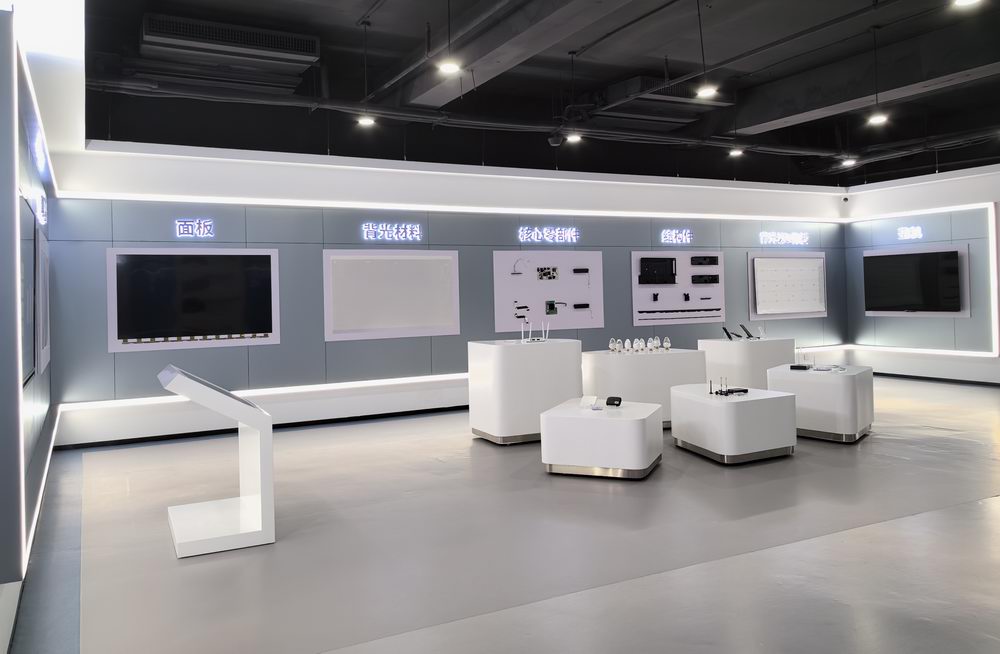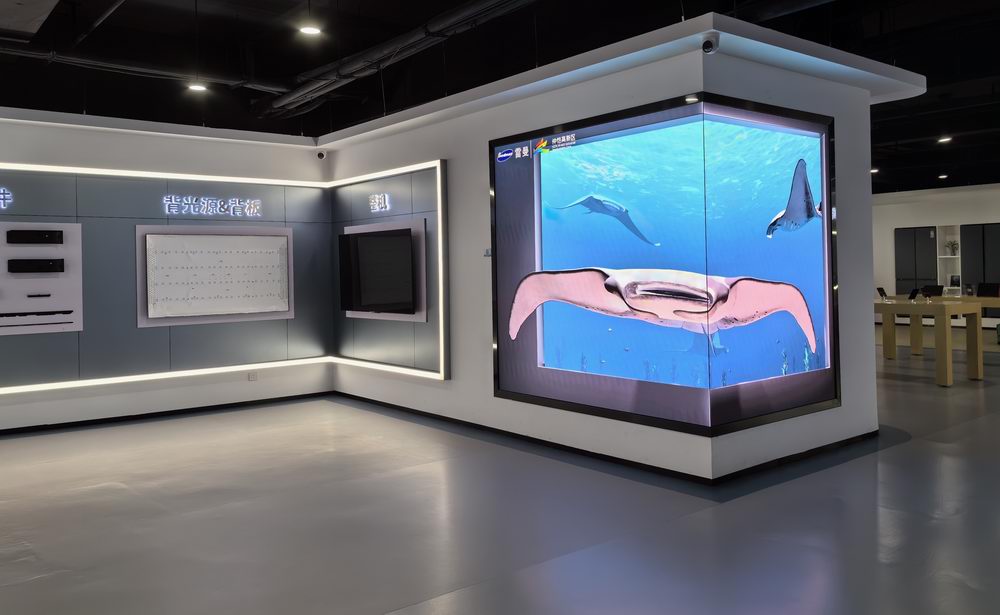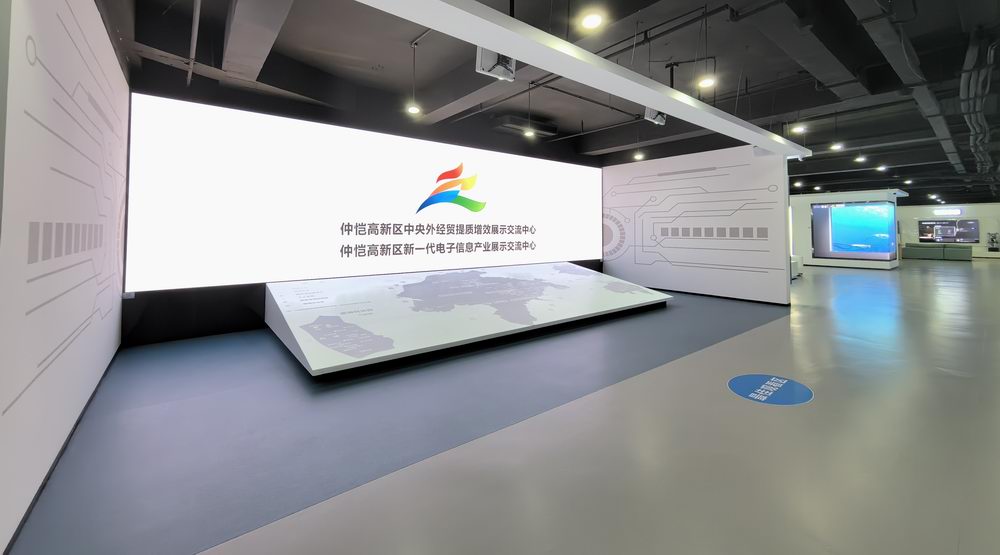What Makes Intelligent Manufacturing Essential?

Intelligent manufacturing revolutionizes the industry by incorporating cutting-edge technologies such as automation and data analytics. This strategy optimizes production processes, boosts efficiency, and fuels innovation. The Intelligent Manufacturing Industrial Park acts as a core engine of the economic industry, promoting growth and bolstering local economies. Within the Huizhou Zhongkai High-tech Zone, the National Foreign Trade Transformation and Upgrading Base (Electronic Information) Cloud Platform plays a pivotal role. It offers vital support to enterprises, enhancing their development and competitiveness. The global market for intelligent manufacturing is anticipated to reach $754.1 billion by 2030, underscoring its increasing significance.
Understanding Intelligent Manufacturing
Definition and Key Concepts
What is Intelligent Manufacturing?
Intelligent manufacturing uses advanced technologies to improve production. Automation, data analytics, and smart systems play a big role. Factories become more efficient and flexible. This approach helps businesses stay competitive.
Core Principles of Intelligent Manufacturing
Intelligent manufacturing relies on several core principles:
Interconnectivity: Machines and systems communicate seamlessly.
Information Transparency: Data flows freely for better decision-making.
Decentralized Decision-Making: Systems make decisions without human intervention.
Real-Time Capabilities: Immediate responses to changes in the production environment.
Technologies Involved
Automation and Robotics
Automation and robotics streamline processes. Robots handle repetitive tasks with precision. This reduces errors and increases productivity. Factories achieve higher output with less downtime.
Internet of Things (IoT)
The Internet of Things connects devices and systems. IoT enables real-time data sharing. Factories use this data to optimize operations. Smart factories become more responsive and adaptive.
Artificial Intelligence and Machine Learning
Artificial intelligence and machine learning provide insights. These technologies predict maintenance needs and enhance quality control. Supply chain management becomes more efficient. AI and ML automate complex decisions.
Components of Intelligent Manufacturing
Smart Factories
Smart factories integrate technology at every level. Cyber-physical systems (CPS) connect the physical and digital worlds. Sensors and microprocessors collect data. Factories use this data to improve processes.
Cyber-Physical Systems
Cyber-physical systems form the backbone of intelligent manufacturing. These systems combine physical components with digital networks. They enable seamless communication and control. CPS enhances efficiency and innovation.
Data Analytics and Cloud Computing
Data analytics and cloud computing support intelligent manufacturing. Factories analyze vast amounts of data. Cloud platforms store and process this information. The Huizhou Zhongkai High-tech Zone's cloud platform supports local enterprises. Companies gain insights that drive growth and competitiveness.
Intelligent Manufacturing Industrial Park: Core Engine of Economic Industry

Role in Economic Development
Driving Innovation and Growth
The Intelligent Manufacturing Industrial Park serves as a core engine of economic industry by fostering innovation and growth. The park provides a hub where cutting-edge technologies meet entrepreneurial spirit. Businesses gain access to state-of-the-art facilities and resources. This environment encourages the development of new products and processes. Companies can experiment with intelligent manufacturing systems, leading to breakthroughs that drive the industry forward.
Case Studies:
Huizhou Zhongkai High-tech Zone: The National Foreign Trade Transformation and Upgrading Base (Electronic Information) Cloud Platform supports local enterprises. Businesses use this platform to enhance competitiveness and streamline operations. The cloud platform offers tools for data analytics and process optimization.
Outcome: Enterprises report increased efficiency and reduced costs. The platform's resources help businesses adapt to market changes swiftly.
Supporting Local Economies
The Intelligent Manufacturing Industrial Park also plays a vital role in supporting local economies. The park attracts businesses and creates jobs, boosting the local workforce. By providing infrastructure and facilities, the park stimulates economic activity. Local suppliers and service providers benefit from increased demand. The park's presence enhances the overall economic landscape, making the region more attractive to investors.
Key Features of Industrial Parks
Infrastructure and Facilities
The infrastructure within the Intelligent Manufacturing Industrial Park is top-notch. The park offers modern facilities equipped with advanced technology. Businesses have access to high-speed internet and robust communication networks. These features ensure seamless operations and connectivity. The park's layout promotes efficient logistics and transportation, reducing delays and costs.
Collaboration and Networking Opportunities
Collaboration and networking opportunities abound in the Intelligent Manufacturing Industrial Park. The park hosts events and workshops that bring together industry leaders and innovators. Businesses can share knowledge and best practices. Networking fosters partnerships and collaborations that lead to new projects and ventures. The park's community-driven approach enhances the potential for collective growth and success.
Benefits of Intelligent Manufacturing

Increased Efficiency and Productivity
Streamlined Production Processes
Intelligent manufacturing transforms production lines. Automation and robotics handle repetitive tasks. This change speeds up production cycles. Factories achieve higher throughput and consistent standards. The result? A healthier bottom line for businesses.
Reduced Downtime
Predictive maintenance plays a crucial role. Advanced analytics predict equipment failures. Factories schedule maintenance before issues arise. This approach reduces downtime significantly. Operations run smoothly without unexpected halts.
Enhanced Quality and Precision
Real-time Monitoring and Control
Real-time monitoring ensures precision. IoT devices track every step in production. Data flows continuously, allowing instant adjustments. Factories maintain high-quality standards. Customer satisfaction increases with better products.
Improved Product Quality
Intelligent systems enhance product quality. Automation minimizes human error. Consistent production leads to fewer defects. Businesses enjoy increased customer trust. A focus on quality boosts competitiveness in the market.
Cost Reduction and Sustainability
Energy Efficiency
Energy efficiency becomes a priority. Intelligent systems optimize energy use. Factories reduce consumption without sacrificing output. Lower energy bills benefit the environment and the budget. Sustainable practices become a competitive advantage.
Waste Minimization
Waste reduction is another key benefit. Smart systems analyze production waste. Factories implement strategies to minimize it. Less waste means lower costs and environmental impact. Businesses achieve sustainability goals while saving money.
The Huizhou Zhongkai High-tech Zone cloud platform supports these advancements. Enterprises in the zone gain access to cutting-edge tools. The platform enhances development and competitiveness. Companies adapt swiftly to market changes. The support provided by the cloud platform proves invaluable for growth.
Challenges and Solutions
Implementation Barriers
High Initial Costs
Many businesses face high initial costs when starting intelligent manufacturing. Equipment and technology investments can be expensive. Companies often hesitate due to financial constraints. However, long-term benefits outweigh these upfront expenses. Businesses can explore financing options or government incentives to ease the burden.
Integration with Existing Systems
Companies can work with experts to develop integration strategies. Successful integration leads to smoother operations and increased efficiency.
Workforce Adaptation
Skill Development and Training
Intelligent manufacturing demands a skilled workforce. Employees need training to handle advanced technologies. Many workers lack the necessary skills initially. Companies should invest in comprehensive training programs. Upskilling employees boosts productivity and job satisfaction. A well-trained workforce adapts better to technological changes.
Change Management
Change management plays a crucial role in workforce adaptation. Employees often resist new processes and technologies. Effective communication helps ease this transition. Companies should involve employees in decision-making. Encouraging feedback fosters a positive work environment. Successful change management leads to smoother transitions and higher morale.
Data Security Concerns
Protecting Sensitive Information
Data security concerns arise with intelligent manufacturing. Protecting sensitive information becomes a priority. Cyber threats pose significant risks to businesses. Companies must implement robust security measures. Regular audits and updates enhance data protection. A secure system safeguards valuable information and builds trust.
Ensuring System Integrity
Ensuring system integrity is vital for intelligent manufacturing. Malfunctions or breaches can disrupt operations. Businesses need reliable systems to maintain efficiency. Regular maintenance and monitoring prevent potential issues. Companies should collaborate with experts to ensure system integrity. A stable system supports seamless production and growth.
Expert Testimony:
Electrical Engineer Expert Witnesses emphasize the importance of staying up to date with electrical codes. Industrial settings bring unique challenges like electrical safety risks. Thorough investigations and advice on safety and compliance help tackle these issues.
Future Outlook and Practical Examples
Emerging Trends in Intelligent Manufacturing
Advanced Robotics and Automation
Manufacturers are embracing advanced robotics to boost production. Robots handle tasks with precision and speed. This shift reduces human error and increases output. Factories see improved efficiency and lower costs. Robotics also allows for more flexible production lines. Businesses adapt quickly to changing demands.
Expansion of IoT Applications
The Internet of Things (IoT) is transforming manufacturing. Devices connect and share data in real time. Factories use this data to optimize processes. IoT applications enhance monitoring and control. Companies gain insights into operations. This leads to better decision-making and resource management. The expansion of IoT drives innovation in smart factories.
Case Studies and Real-world Applications
Success Stories from Leading Manufacturers
Leading manufacturers have seen success with intelligent manufacturing. Smart Manufacturing Case Studies highlight vast improvements. Companies report operational efficiencies and cost savings. Real-time data and analytics improve decision-making. Businesses make informed choices about production and resources. The integration of IoT and servitization concepts has been key. Factories achieve vertical and horizontal integration.
Case Study Example:
Huizhou Zhongkai High-tech Zone: The cloud platform supports local enterprises. Businesses enhance competitiveness and streamline operations. The platform offers tools for data analytics and process optimization. Enterprises report increased efficiency and reduced costs. The platform's resources help businesses adapt to market changes swiftly.
Lessons Learned and Best Practices
The Huizhou Zhongkai High-tech Zone's cloud platform showcases these principles. Enterprises leverage cutting-edge tools for growth and competitiveness.
Intelligent manufacturing stands as a game-changer in modern industry. The approach optimizes supply chain operations and enhances efficiency. The Huizhou Zhongkai High-tech Zone's cloud platform plays a crucial role. The platform supports local enterprises by providing advanced tools and resources. Businesses gain a competitive edge through automation and data analytics. Future advancements promise even greater benefits. Companies should embrace intelligent manufacturing for sustained growth. The journey towards innovation and excellence begins now.
See Also
Leading Figures in the Worldwide Smart Control Sector
Maximizing Growth Opportunities in Technology Zones
Huizhou's Technology Hub: Driving Industry Expansion
Zhongkai High tech Zone National foreign trade transformation and Upgradi Base(Electronic Information)Cloud Platform.
Address: Zhongkai High-tech Zone,Huizhou City ,Guangdong,China
E-mail: huizhoueii@163.com 13510001271@163.com
Tel: +86-0752-3279220 Mobile: +86-13510001271


